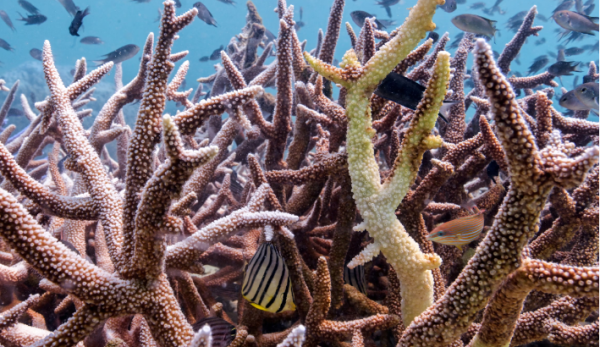
The direct contribution of tourism to the Greek GDP in 2022 is estimated at €24 billion, equivalent to 11.5%, with five regions representing nearly 90% of the country’s revenues, three of which are purely tourist regions, according to a study by INSETE, a non-profit organization promoting the tourism sector.
As the study notes, these figures reflect the resilience and dynamism of the tourism sector, as 2022 marked the exit from the pandemic, despite facing initial months and related restrictions. The Southern Aegean, accounting for 27% of revenues, Crete with 21%, Attica with 17%, the Ionian Islands with 15%, and Central Macedonia with 9%, collectively contribute to almost 90% of the total tourism revenues.
The report refers to 18 strategic directions at the national level from the grouping of Actions in the study by INSETE titled “Greek Tourism 2030 │ Action Plans.”
Key Findings:
Based on the report, the majority of the country’s tourists arrive by plane, followed by road arrivals, with minimal percentages for arrivals by ship and train. The trend in air arrivals has strengthened since 2019, increasing from 66% to 76% in 2022, while other categories saw a decrease: by car from 31% in 2019 to 22% in 2022, by ship from 3% in 2019 to 2% in 2022, and train from only 0.02% in 2019 to 0.01% in 2022. However, it’s essential to note that 2022 was not a “normal” tourist year.
Regarding the seasonality of Greek tourism, the bulk of arrivals traditionally occurs in the third quarter, with the July-September period gathering 56% of the country’s visitor arrivals, based on both 2022 and 2019 data.
The aim is to identify critical areas of intervention in the sector, emphasizing the urgent need for the public and private sectors to join forces and collectively ensure the competitiveness and future, sustainable growth of Greek tourism.
Source: tovima.com
Latest News

WTTC: Travel & Tourism to Create 4.5M New Jobs in EU by 2035
This year, international visitor spending is set to reach 573 billion euros, up by more than 11% year-on-year

IMF: US Tariffs Shake Global Economy, Outlook Downbeat
IMF slashes global growth forecast to 2.8% as U.S. tariffs create uncertainty and ‘negative supply shock

First Step Towards New Audiovisual Industry Hub in Drama
The project is set to contribute to the further development of Greece’s film industry and establish Drama as an audiovisual hub in the region

Airbnb Greece – Initial CoS Ruling Deems Tax Circular Unlawful
The case reached the Council of State following annulment applications filed by the Panhellenic Federation of Property Owners (POMIDA)

Mitsotakis Unveils €1 Billion Plan for Housing, Pensioners, Public investments
Greek Prime Minister Kyriakos Mitsotakis has announced a new set of economic support measures, worth 1 billion euros, aiming to provide financial relief to citizens.

Alter Ego Ventures Invests in Pioneering Gaming Company ‘Couch Heroes’
Alter Ego Ventures' participation in the share capital of Couch Heroes marks yet another investment by the Alter Ego Media Group in innovative companies with a focus on technology.

Corruption Still Plagues Greece’s Driving Tests
While traffic accidents continue to claim lives on Greek roads daily, irregularities and under-the-table dealings in the training and testing of new drivers remain disturbingly widespread

Pope Francis Died of Stroke and Heart Failure Vatican Confirms
As news of the official cause of death spread, tributes poured in from across the globe. The 1.4 billion-member Catholic Church is united in grief, remembering a pope who championed inclusion, justice, and compassion

Increase in Both Museum Visits, Revenues for 2024
As expected, the Acropolis was the top archeological site in the country, followed by Sounion, Mycenae, the ancient theater of Epidaurus, and Vergina in northern Greece

Where Greece’s Tourists Come From: A Look at 2025’s Top Visitor Markets
The United Kingdom continues to hold the top spot as the largest source of incoming tourism, with 5.6 million seats booked for Greece this summer — up 2.2% from last year. This accounts for 20% of all international air traffic to Greece
















![Ξενοδοχεία: Μεγάλο το ενδιαφέρον για επενδύσεις στην Ελλάδα – Η θέση της Αθήνας [γραφήματα]](https://www.ot.gr/wp-content/uploads/2025/03/Athens-hotels-90x90.jpg)
























 Αριθμός Πιστοποίησης
Αριθμός Πιστοποίησης